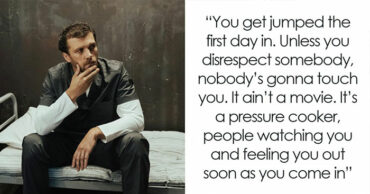Family obligations are one of those things that most people feel they (and others) have, but few can actually identify exactly where they begin and end. So it’s unfortunately a common cause of conflict and drama when one family member has expectations of another that don’t match reality.
A man asked the internet for advice on how to handle a family situation that arose when his parents asked him to take in his non-verbal autistic brother. When he initially refused, they stopped talking to him. We reached out to the man who made the post via private message and will update the article when he gets back to us.
Taking care of disabled relatives is something most families would see as normal

Image credits: rawpixel.com / freepik (not the actual photo)
But one man ended up getting into conflict with his parents when he wouldn’t take in his autistic brother

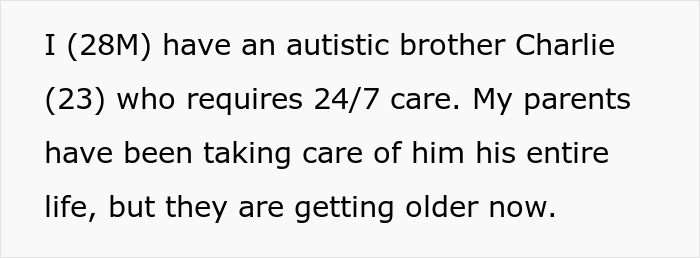
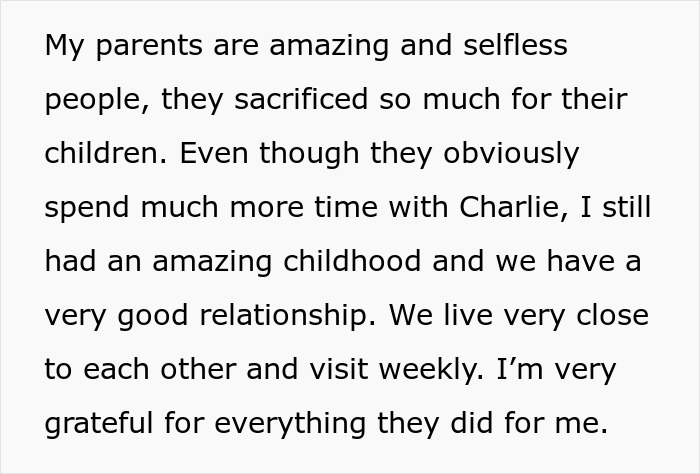
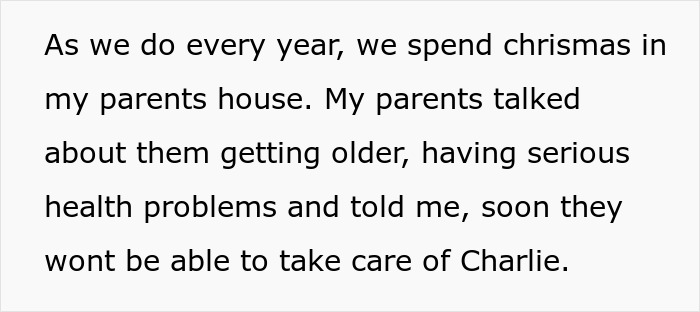
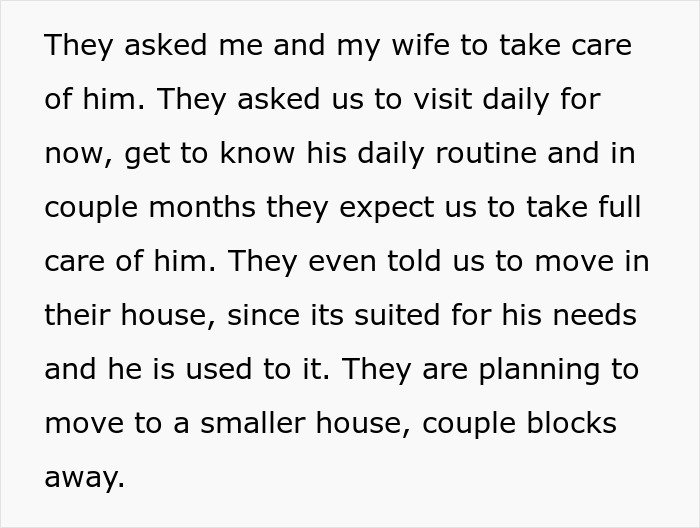


Image credits: Andrej Lišakov / Unsplash (not the actual photo)

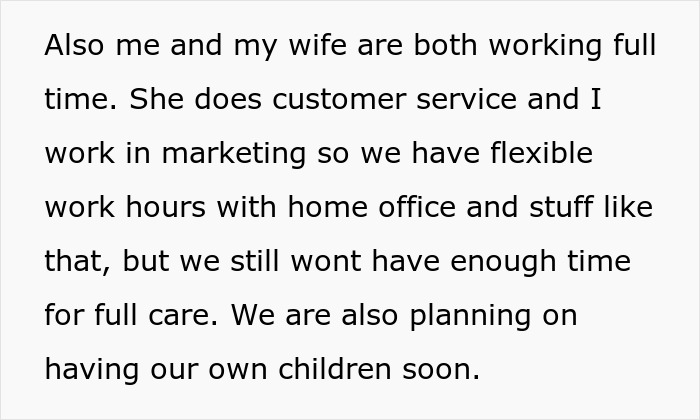

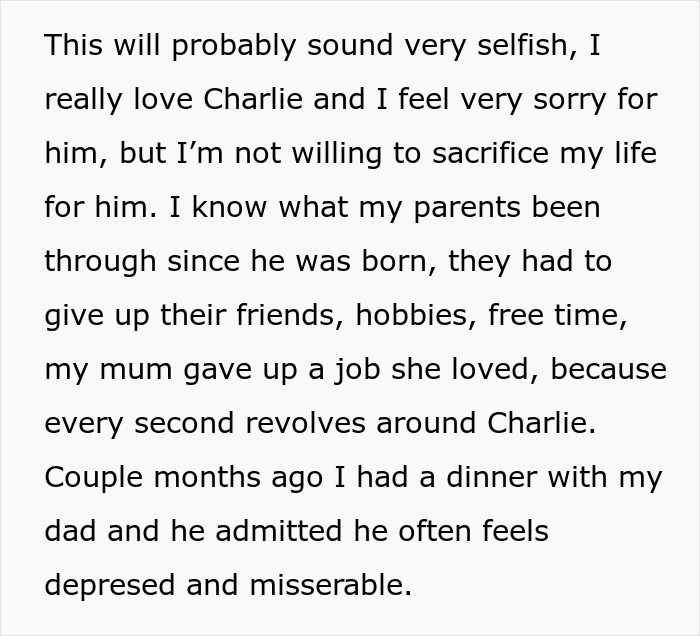

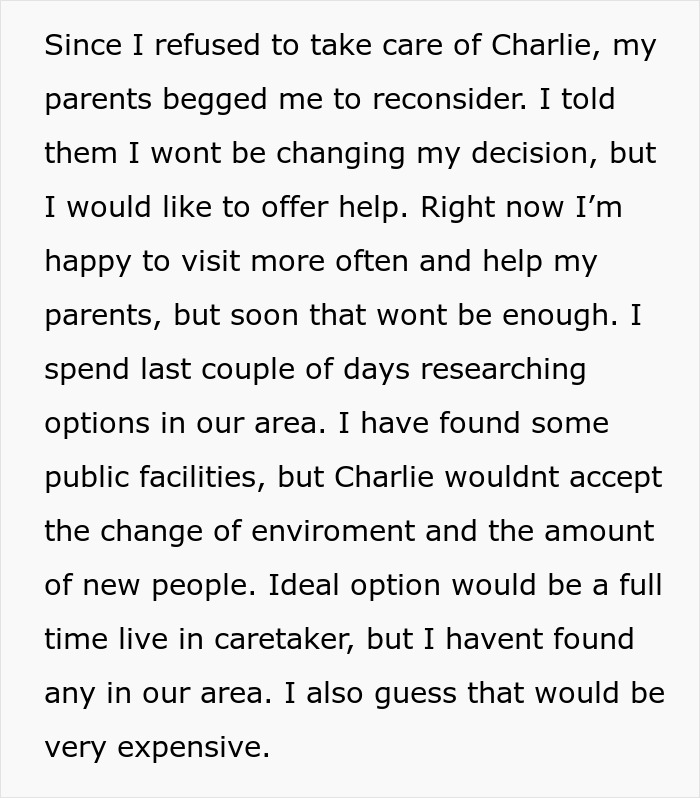

Image credits: PlaceboPill / freepik (not the actual photo)
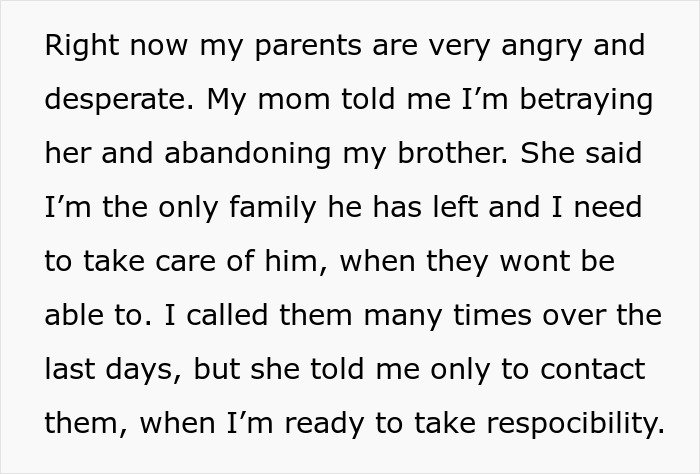



Image credits: throwRA67676789
Some family situations don’t have easy answers
Family ties are strong, and when one of the family members has a disability, these ties get challenged in multifaceted ways. For a 28-year-old male whose parents insist that he bring home his 23-year-old non-verbal autistic brother, the battle is high-stakes. When he declined, his parents shut him out, leaving him with what feels like an inner conflict between wanting to assist and being aware that he cannot realistically care for his brother on a full-time basis. These circumstances are more common than most are aware, and they require compassion not only for the disabled person, but for both sides of the care arrangement.
Step one is knowing that knowing your limitations does not mean you don’t care. Twenty-four-hour caregiving is tiresome, not only for your emotions but your body as well. It typically requires specialized training, money, and support systems. One inexperienced person can easily burn out, serving no one, certainly not the brother who needs capable, routine care. By understanding you cannot do this alone, you are actually protecting your brother from an unworkable situation.
Parents assume that the siblings will “step up” as caregivers when they are no longer able to. That is a natural expectation of love and fear, but one which can also unrealistically burden one person with a lifetime of duty. It is natural to feel guilty about refusal, but guilt does not require responsibility. Your worth as a brother is not gauged by whether you are able to equal the competence of a professional caregiver. It’s quantified by how much you help in ways that are feasible and meaningful. Just because you can’t be there full-time doesn’t mean you can’t assist. Some functional alternatives include:
These conflicts can escalate to the point where no one is talking to each other

Image credits: jet-po / freepik (not the actual photo)
Being estranged by your parents is painful but typically reflects their fear of the future over anything else related to you. They may fear what will happen to your brother once they are no longer capable of taking care of him. That fear can take the form of pressure or anger. If contact is re-established, try to listen with empathy and hold firm boundaries. You can say that you do want to be involved, but only in a way that will work with your life. Boundaries are not rejection, indeed, they are clarity.
You don’t have to go through this alone. Processing feelings of resentment and guilt in therapy might prove useful, and calling disability advocacy groups may get you some concrete choices. Adult care programs, group homes, or supported living arrangements are often available in communities to help lift the burden off families. Being aware of what’s out there may assuage your parents’ fears and give you bargaining leverage when you meet with them again.
No single sibling must bear the entire burden of lifelong responsibility. Families, professionals, and communities all chip in. By refusing to accept an unsustainable situation, you’re not abandoning your brother. You’re safeguarding both you and him from a dynamic that would collapse under pressure. Your role can still be significant, it just needn’t be total. You can be an engaged, loving brother without being a caregiver all the time. Boundaries are not selfish. It’s an act of integrity that provides your brother with consistent, professional care he needs, and keeps you healthy enough to be present in his life in a sustainable way.
He gave some clarifications in the comments



Readers generally saw his point of view and some gave a few suggestions




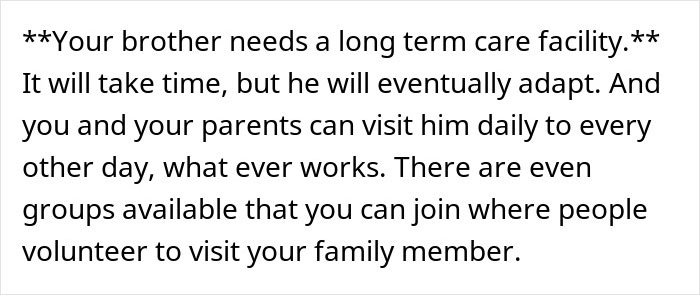

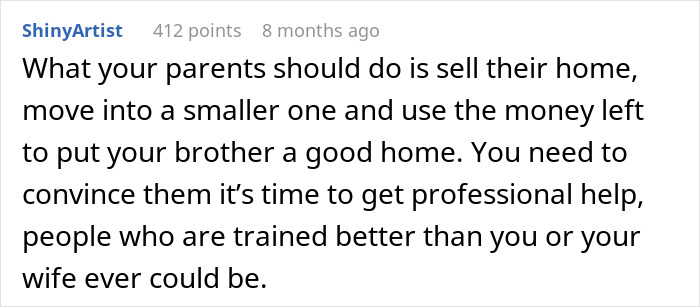


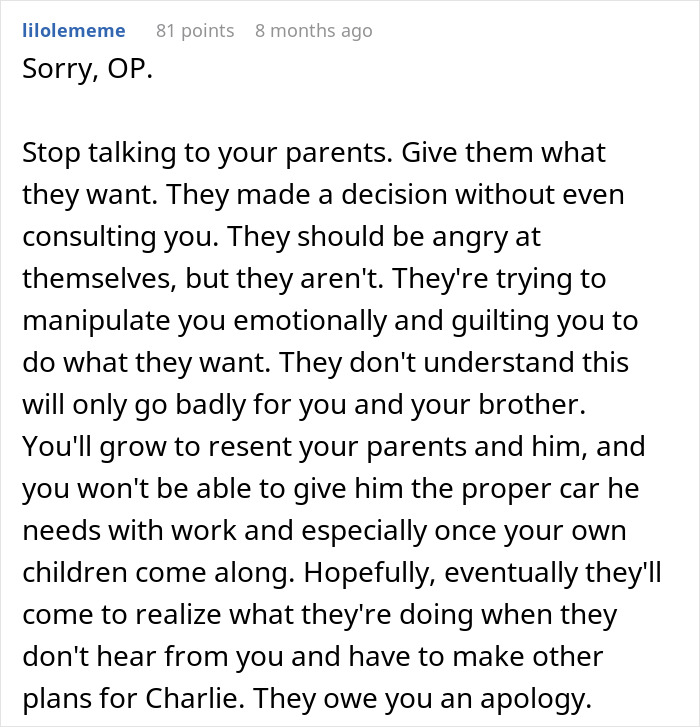
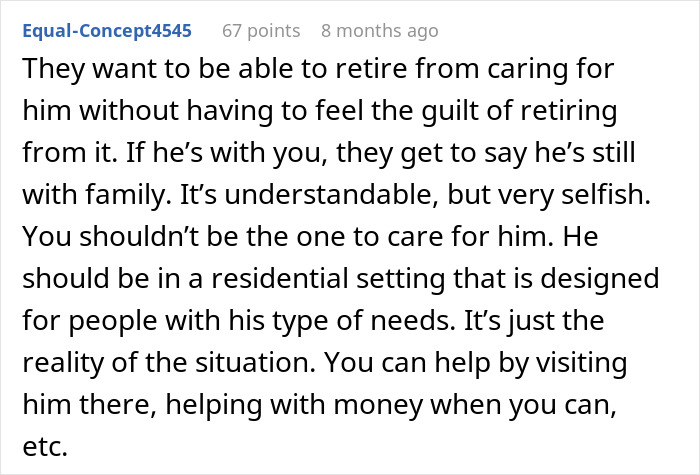
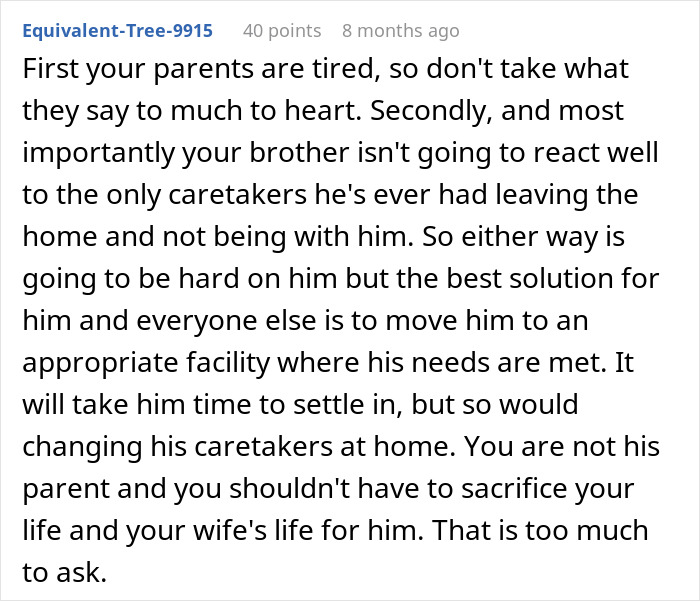
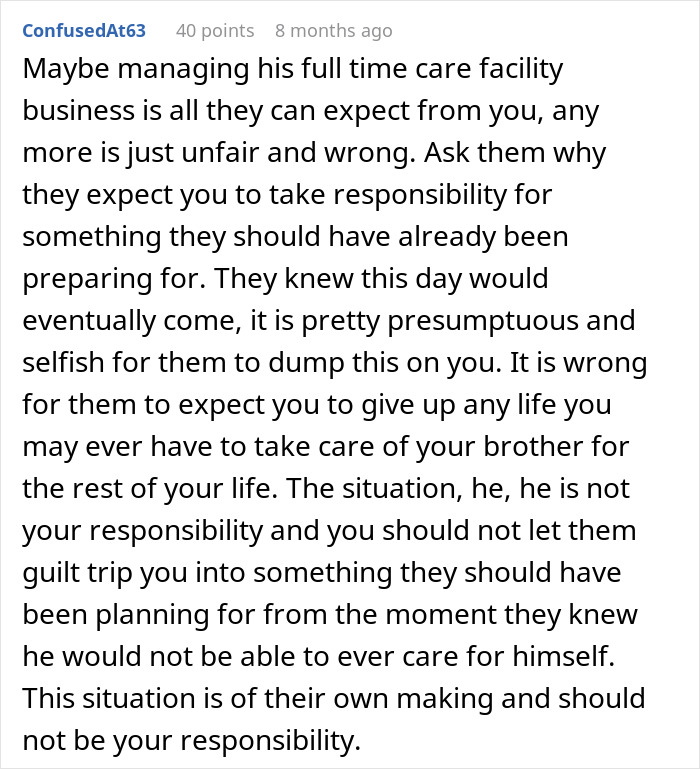
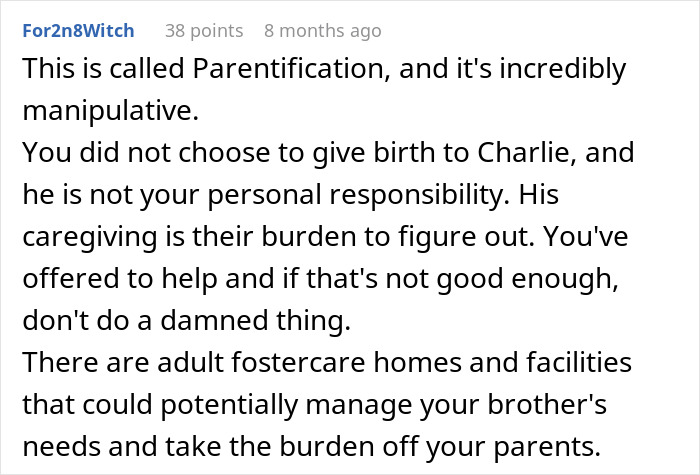



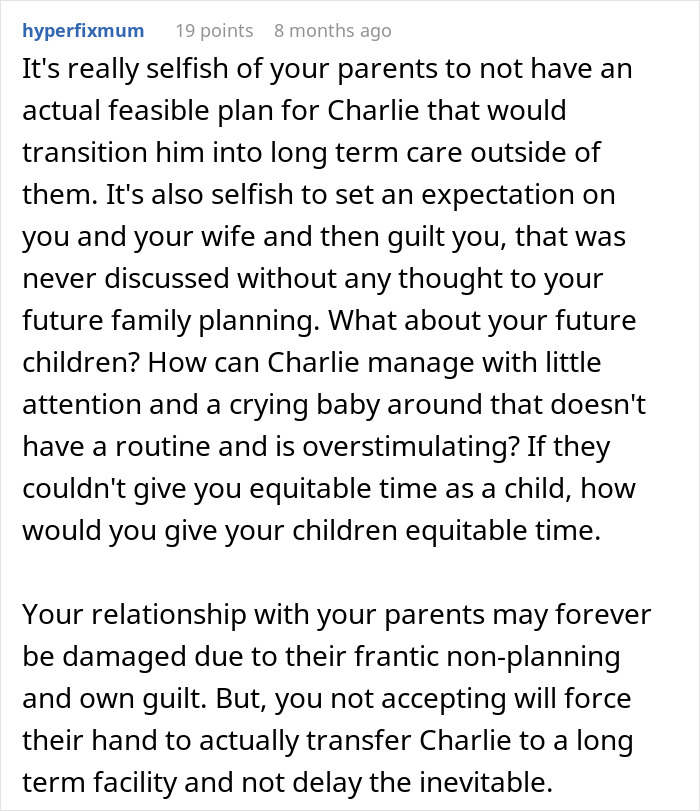
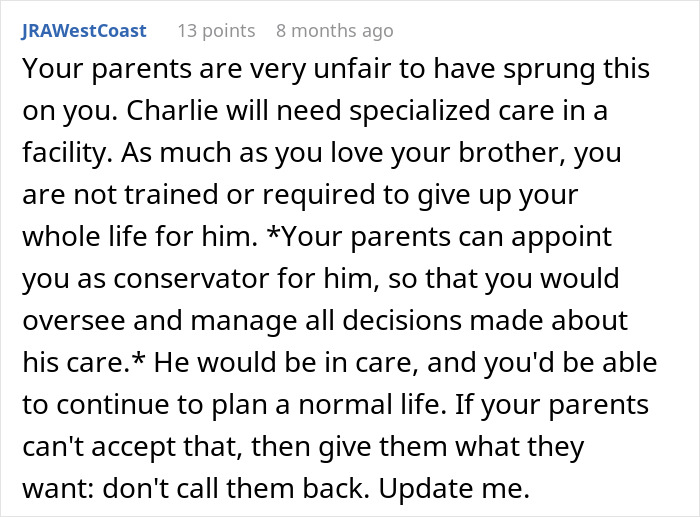



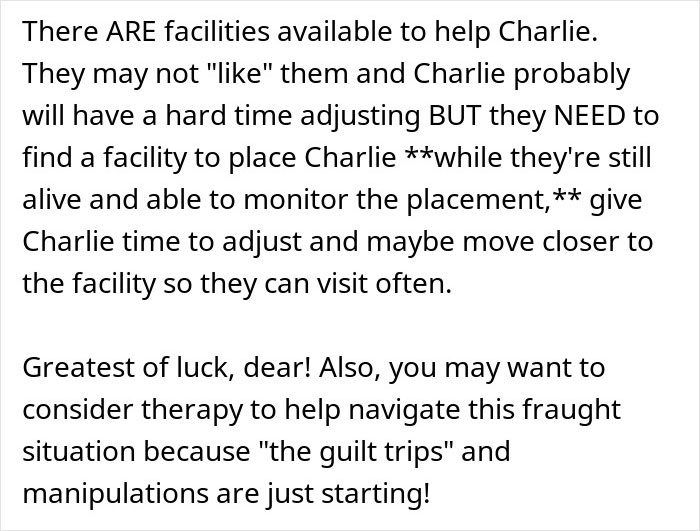
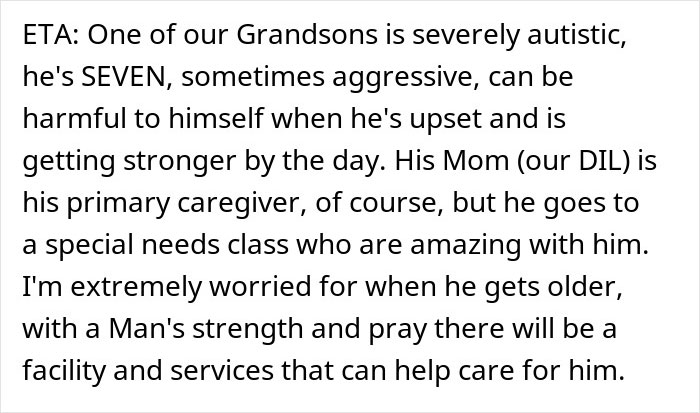
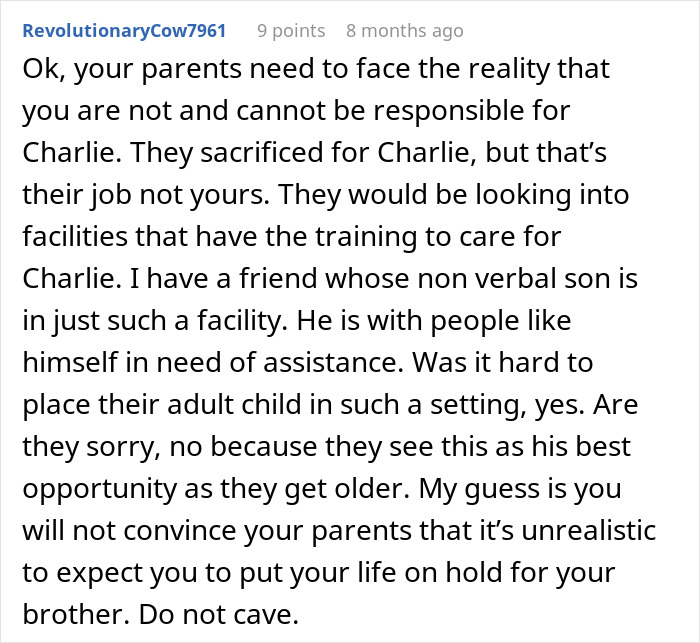

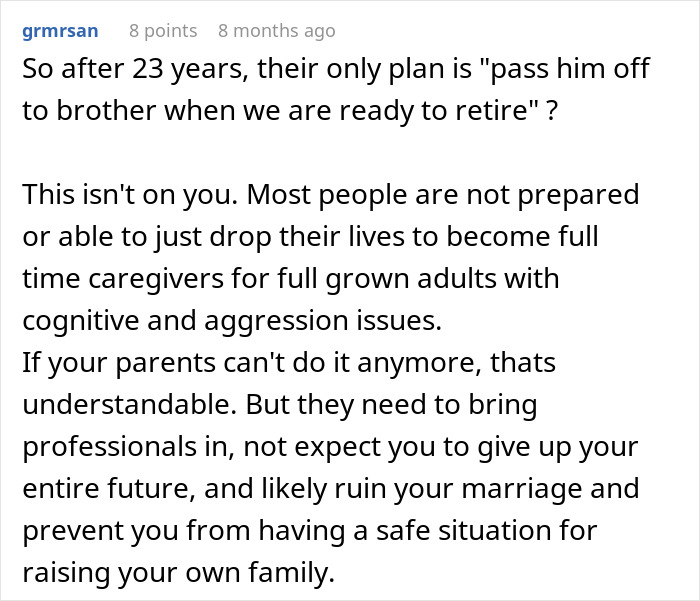


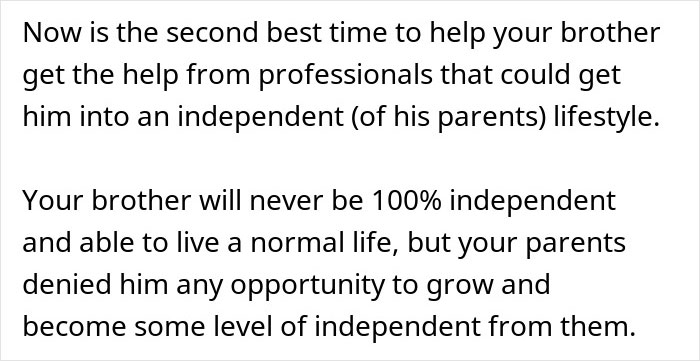

 Follow Us
Follow Us
